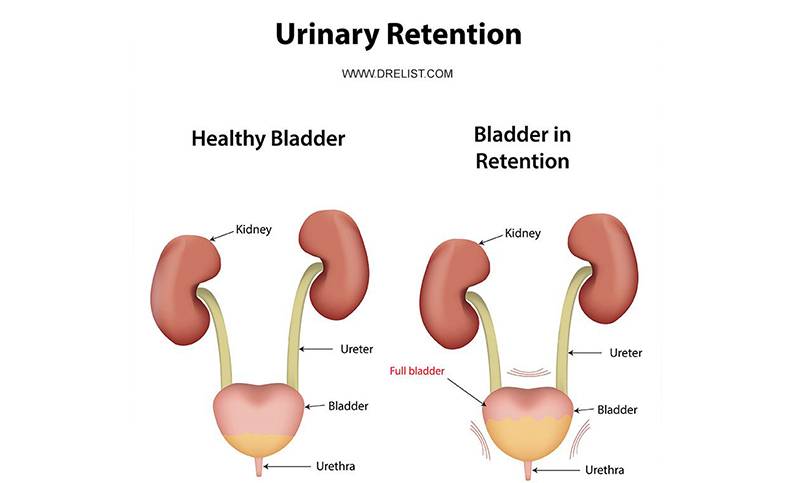
A number of health conditions can make it hard for you to pee or even keep you from peeing at all. Some conditions are minor, and some are more serious. Read on to find out more about urinary retention.
For most people, going to the toilet is probably one of their most thoughtless daily activities. But if you have problems with peeing, especially not being able to go, you might be suffering from urinary retention, meaning you might find it hard to think about anything else.
What is urinary retention?
Urinary retention is the failure to completely empty your bladder. It may be sudden in onset, or gradual in onset and long-standing. When you cannot empty your bladder, despite an urge to urinate, you have urinary retention.

Causes of urinary retention
Due to the fact that there are different types of this issue, there are also many different causes, but some of the most common are:
- recent surgery in the genital, prostate, rectal, pelvic or lower abdominal area
- medical conditions such as diabetes or multiple sclerosis
- injury to the genital or pelvic region
- an obstruction in the urethra, for example with a urinary tract stone
- nerve problems
- weakened bladder muscles
- constipation
- some medicines
- some infections or inflammation
Sometimes urinary retention comes on more gradually, and you may slowly notice that you cannot fully empty their bladder. Unlike other forms, this type may take months or years to develop and is not usually painful.
What to do if you suffer from urinary retention
If you are having problems passing urine, there are a number of things you can do that may help manage the condition:
- Try urinating in a bath of warm water.
- Turn on the taps of the sink or basin and let the water trickle. Sometimes the sound of running water helps to start urination.
- If you believe a particular medication is affecting your ability to urinate, you should not stop taking it if it is safe to do
- If you are in pain, seek advice from a medical professional straight away

Diagnosing urinary retention
A health care provider may diagnose acute or chronic urinary retention with a physical exam or postvoid residual measurement. A health care provider may use a number of medical tests such as a cystoscopy, CT scan, urodynamic tests or electromyography to help determine the cause of urinary retention.
Treatment for Urinary Retention
A health care provider treats urinary retention with bladder drainage, urethral dilation, urethral stents, prostate medications or surgery.
The type and length of treatment depend on the type and cause of urinary retention.
It is essential to become well-informed and educated regarding the options and treatment methods available to you. If you have any questions or would like to book an appointment, please feel free to contact or call Dr Arianayagam’s office on 1300 307 990 and his staff will be able to assist.
While you’re here, learn more from these helpful blog posts:
Neurogenic Bladder | Symptoms, Causes & Treatment

